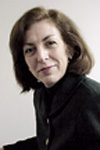ELYRIA, Ohio - Invacare has hired its first-ever vice president of sleep and removed the business unit from its respiratory group, signaling a commitment to boost its presences in a fast-growing market that shows no sign of slowing down.
Ann MacGregor, a nine-year sleep veteran with previous positions at Mallinckrodt and Pulmonetic Systems, will shepherd the business unit that, until now, has operated under John Ledek's purview in the overall respiratory group.
"As Pete Farrell (ResMed CEO) recently said, there are billions of dollars to be made in sleep, but we're still in a kind of infancy in terms of what we know and what it does," said MacGregor.
MacGregor's background is not clinical, but it is sleep specific. At Pulmonetics, she developed a new ventilator line. She's also worked as vice president of sales and marketing at Dymedix, a start-up company specializing in diagnostics sensor technology. At Mallinckrodt, she was a business segment director for CPAP masks, apnea monitors and adult diagnostics.
As MacGregor cuts her teeth at Invacare, the company continues to campaign for sleep credibility with SoftX, a C-flex like flow generator that backs off the pressure at exhalation.
In an article published in the November issue of Respiratory Care, preliminary findings of one study showed that using SoftX boosted nightly CPAP usage by 78 minutes for patients on prescribed pressures greater than 10 cmH20. The same study showed little difference between the study and control groups for pressures less than 10 cmH20.
Invacare has also developed a physician advisory board and is working on a sleep poster for the APSS conference in June.
Despite Invacare's dominance in the HME market, it's still a bit player in sleep. But SoftX, insists MacGregor, elevates Invacare into the "Big Three" with Respironics and ResMed as purveyors of the popular new expiratory back-off technology, which suppliers now want as a standard feature on CPAP.
Two more companies are conducting clinical studies using SoftX, deepening the layers of clinical credibility (or lack thereof), and McGregor, whose work in sleep has historically involved sleep labs, is pushing for greater reception among lab techs and docs.
"As we bring out the clinical data and provide paper backup, more and more people will jump on the bandwagon and see that Invacare is not just a wheelchair company," she said.
With science blaming more and more co-morbidities on sleep disordered breathing, and more and more disease states (i.e. diabetes) instigating sleep-disordered breathing, the potential upside to anybody's sleep business is great.
Today, airways are kept open with flow generation, but three to five years from now, MacGregor believes new technologies may very well make CPAPs obsolete.
"There are going to be new ways of air delivery to the patient, more consumer-based, ease-of-use features for the patient that revolve around comfort and increasing compliance, and--firstly--increased downloadable info about the patient's condition for the sleep labs to review."
She's got an opinion about the future, and it's all about niches. All the major sleep players, she said, will carve out a niche for themselves and not handle everything. One niche may be the consumer market, one in heart disease, one in obesity, one in traditional sleep.
"You can only afford so many new technologies all at once," she said.




Comments